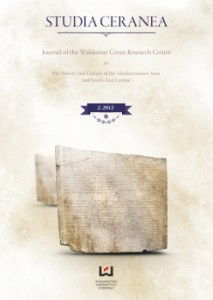St. Symeon the New Theologian and Western Dissident Movements
St. Symeon the New Theologian and Western Dissident Movements
Author(s): Bernard Hamilton, Janet HamiltonSubject(s): History
Published by: Wydawnictwo Uniwersytetu Łódzkiego
Summary/Abstract: The trial at Orleans in 1022 of a group of aristocratic clergy, who included the confessor of Queen Constance of France, and their followers on the charge of heresy is the most fully reported among the group of heresy trials which were conducted in the Western Church during the first half of the eleventh century. Although the alleged heretics of Orleans are usually considered a part of a wider pattern of Western religious dissent, the charges brought against them differ considerably from those levelled against the other groups brought to trial in that period. The heterodox beliefs with which the canons of Orleans were charged bear a strong resemblance to the teachings of the Byzantine abbot, St. Symeon the New Theologian, who died in 1022. St. Symeon taught that it was possible for a Christian to experience the vision of God in this life if he or she received ascetic guidance from a spiritual director, who need not be a priest. In the late tenth and early eleventh centuries a significant number of Orthodox monks visited northern Europe, including Orleans, and some of them settled there. It is therefore possible that the Canons of Orleans who were put on trial had been trained in the tradition of St. Symeon by one of those Orthodox monks who were familiar with it. St. Symeon was part of the Hesychast tradition in the Byzantine Church. Even so, his emphasis on the supremacy of personal religious experience at the expense of the corporate worship of the institutional Church was strongly criticised by some of his contemporaries. A study of his writings shows that he was, in fact, completely Orthodox in faith and practice and that these criticisms were ill-judged. Nevertheless, if, as we have suggested, the Canons of Orleans had tried to live in accordance with his teachings, the hostile reactions of the Western hierarchy would be comprehensible. For there was no tradition of Hesychasm in the spirituality of the Western Church, and the fact that the dissidents at Orleans saw little value in observing the rituals of the established Church would have alarmed conventional churchmen.
- Issue Year: 2012
- Issue No: 2
- Page Range: 137-144
- Page Count: 8
- Language: English

